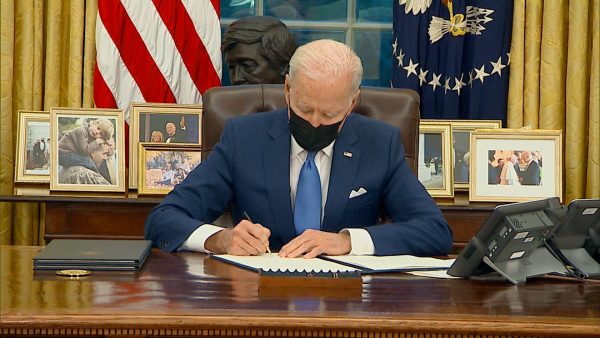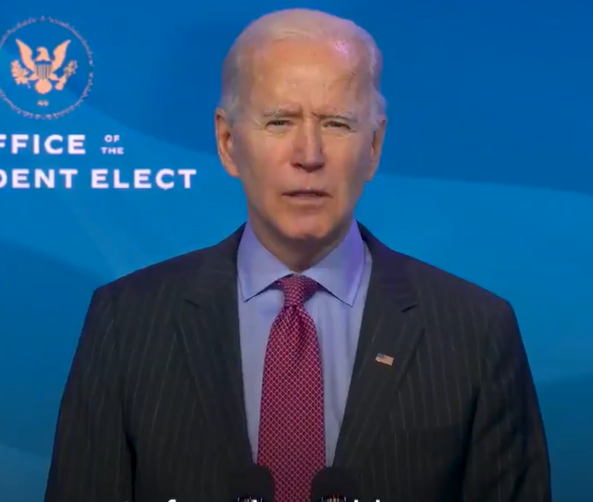Cyrus D. Mehta
Many US citizens, especially those who have recently naturalized, desire to sponsor their senior parents for lawful permanent residence, also colloquially known as the green card. A US citizen can sponsor a parent for a green card as an immediate relative by filing Form I-130 under INA 201(b)(2)(A)(i). Immediate relatives are not subject to quotas that can take many years to clear, and thus the process can be completed within a relatively short period of time. Bringing a parent over to join the US citizen and their family permanently in this country can be a great source of joy and has lots of benefits. In addition to living in close proximity and enjoying emotional bonds, senior parents can be of great help in providing child care thus allowing their US citizen children to work and pursue careers. Some senior parents may have health issues, and having them nearby gives a sense of security in case of emergencies. Other parents can also pursue new careers or hobbies once they immigrate to the US.
Many parents may already have multiple entry visitor visas, or be able to travel on visa waivers, and visit their children once a year or even more frequently. These parents who already have access to the US through visitor visas need to carefully consider whether it is prudent to obtain lawful permanent residency or continue to travel as visitors. It is generally not advisable to use the green card as a tourist visa. A green card holder is required to reside in the US permanently. While travelling once a year on a green card is theoretically permissible, there will come a point in time when the Customs and Border Protection (CBP) officer at a port of entry will question why the green card holder is not permanently residing in the US. The CBP official routinely asks a returning resident how long they have been outside the US since their last departure from the US. If the CBP official determines that the parent has abandoned permanent residence, they could be charged with inadmissibility and placed in removal proceeding. Although the burden of proof is on the government to establish through clear and convincing evidence that the permanent resident has abandoned that status, this burden may be easy to establish if the parent uses the green card to infrequently visit the US rather than reside in the US.
In order to stave off a finding of abandonment, a green card holder must demonstrate that the trip abroad was temporary. Returning back to the US annually may not meet the definition of a temporary trip abroad. Many are under the misimpression that returning to the US within six months would eliminate a finding of abandonment. While a permanent resident is only regarded as seeking admission if the trip abroad has been in excess of 180 days under INA 101(a)(13)(C)(ii), the CBP official can still find abandonment even if the resident departed the US for less than 180 days under 101(a)(13)(C)(i). In any event, in order for the green card to be valid, the resident must return to the US within one year of the prior departure pursuant to 8 CFR 211.1(a)(2).
The term “temporary visit abroad” has been subject to interpretation by a few Circuit Courts. The Ninth Circuit’s interpretation in Singh v. Reno, 113 F.3d 1512 (9th Cir. 1997) is generally followed:
A trip is a ‘temporary visit abroad’ if (a) it is for a relatively short period, fixed by some early event; or (b) the trip will terminate upon the occurrence of an event that has a reasonable possibility of occurring within a relatively short period of time. If as in (b) the length of the visit is contingent upon the occurrence of an event and is not fixed in time and if the event does not occur within a relatively short period of time, the visit will be considered a “temporary visit abroad” only if the alien has a continuous, uninterrupted intention to return to the United States during the visit.
Since the a trip abroad must be of finite duration, or at must terminate upon the occurrence of an event likely to occur within a short period of time, many parents who use the green card as a tourist visa frequently face intrusive inspections by CBP officers at ports of entry. Many are warned to apply for a reentry permit if they continue to infrequently return to the US. INA § 223 provides the authority to the Department of Homeland Security to issue a reentry permit for a period not more than two years. See also 8 CFR 8 CFR § 223.2(c)(2). While the reentry permit can serve as an insurance policy against such an aggressive inspection at a port of entry, this document will not entirely immunize the parent from a finding of abandonment. While length of time may not be used against the green card holder with a valid reentry permit in a finding of abandonment, other activities reflecting abandonment may be considered.
The reentry permit is burdensome to maintain for a senior parent who visits the US a few weeks each year. Form I-131 must be filed only while the parent is physically present in the US, and then the parent must wait a few weeks for the biometrics appointment. If the parent is unable to wait for the biometrics appointment after the filing of the application for the reentry permit, they must return to the US for the biometrics and again risk an aggressive inspection by a CBP official, although the risk may be lessened if it is clear that the parent is returning to pursue a reentry permit.
There are also important tax considerations. Failure to file a resident tax return upon becoming a green card holder, or filing as a nonresident, can have an adverse impact on not just the parent’s green card status but also with respect to the ability to naturalize in the future. See 8 CFR 316.5(c)(2). A green card holder is considered a resident for tax purposes as he or she meets the “green card test” or the “substantial presence test.” Even if the parent does not earn any income in the United States, but has earnings from overseas sources, the parent is generally required to report their worldwide income on a Form 1040 resident US tax return. Moreover, all foreign financial accounts with a value in excess of $10,000 must be reported every year. It behooves a parent in this situation to consult with a tax advisor to ensure that they are not taxed in both countries.
There are many other important considerations. The parent will have to adapt to a completely different lifestyle in the US. For instance, in order to be able to get around, being able to drive in many parts of the US outside major metropolitan areas is essential. There is also no free health insurance for a newly minted green card holder. The parent will have to purchase private health insurance, and can do so on a health exchange under the Affordable Care Act, and there might be subsidies available based on income. As of January 1, 2019, it is no longer mandatory for a lawful permanent resident to have health insurance under the ACA as there is no longer any tax penalty for failure to do so. Green card holders have to wait for 5 years before they become becomes eligible for Medicare. The parent must be 65 or older and must have worked for 40 quarters. Most new green card holders would not have worked 40 quarters, and they may buy in to Medicare after they become eligible. The rules regarding Medicaid for low income green card holders are complex and confusing, and depend on a person’s income, age and the rules of each state. The sponsor’s income on the affidavit of support may also be deemed to the parent’s income. Further information is available here.
All of these factors have to be carefully considered before a parent obtains a green card. Is the parent willing to live in the US permanently and uproot oneself after living a lifetime in the home country? If not, is the parent still prepared to reside in the US at some point in the near future after settling affairs at home, and most likely apply for a reentry permit in the meantime and then maintain it? Is the parent prepared to file US tax returns and declare foreign bank accounts each year? Has the parent’s health needs been taken into account? If the parent is not ready, it may still be preferable for the parent to continue visiting the US as a tourist each year. Of course, if the parent was refused a tourist visa in the past, then being sponsored for a green card makes more sense. There is also now a growing sense of urgency to sponsor a parent sooner than later in light of the rhetoric from President Trump to abolish chain migration, which includes the ability of naturalized citizens to sponsor parents. However, for that to happen, Congress will need to change the law and that is not likely to happen anytime soon in a highly polarized Congress. What is more imminent is a proposed rule that will change the definition of who is likely to become a public charge under INA § 212(a)(4), which might create more obstacles for senior parents to qualify for the green card. Already, the State Department has amended the Foreign Affairs Manual to give consular officers more discretion in making public charge determinations notwithstanding the submission of a Form I-864 affidavit of support.
When everything is considered and an informed decision is made, maintaining the green card will be smoother and not so burdensome. After five years from the issuance of the green card, the parent will be able to apply for US citizenship provided they have been physically present for half the time in the five years preceding the filing of the naturalization application and they have also been continuously residing during this period.
Upon being naturalized, a US citizen is no longer subject to residency requirements. If on the other hand, the parent has a change of heart and does not wish to be a permanent resident of the US, it is best that the parent formally abandon that status by filing Form I-407, otherwise IRS will still consider the parent a resident alien for tax purposes.
Cyrus D. Mehta is the Founder and Managing Partner of Cyrus D. Mehta & Partners PLLC. He is a prolific speaker and writer on contemporary immigration topics. He graduated with law degrees from Cambridge University and Columbia Law School.

























